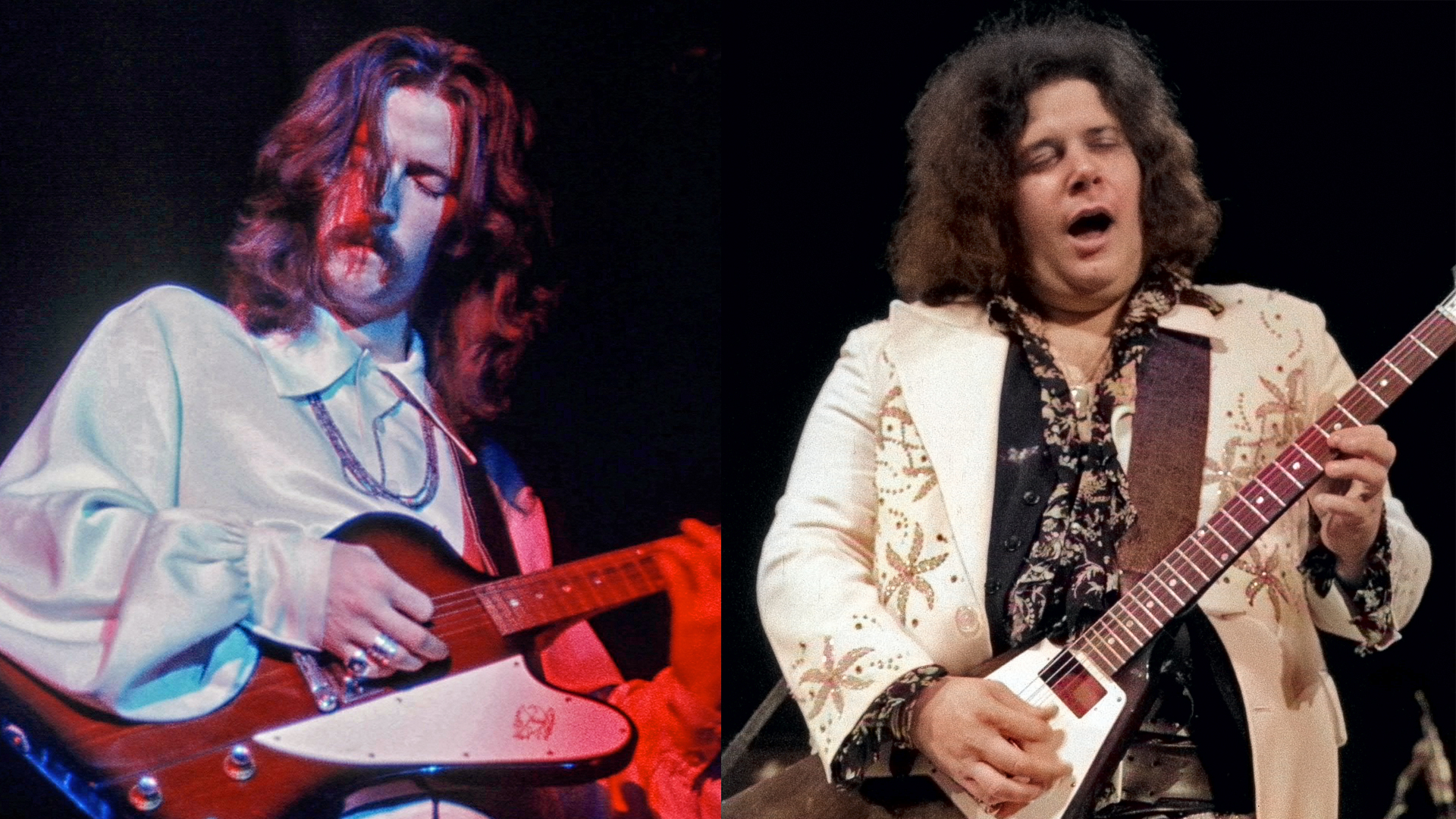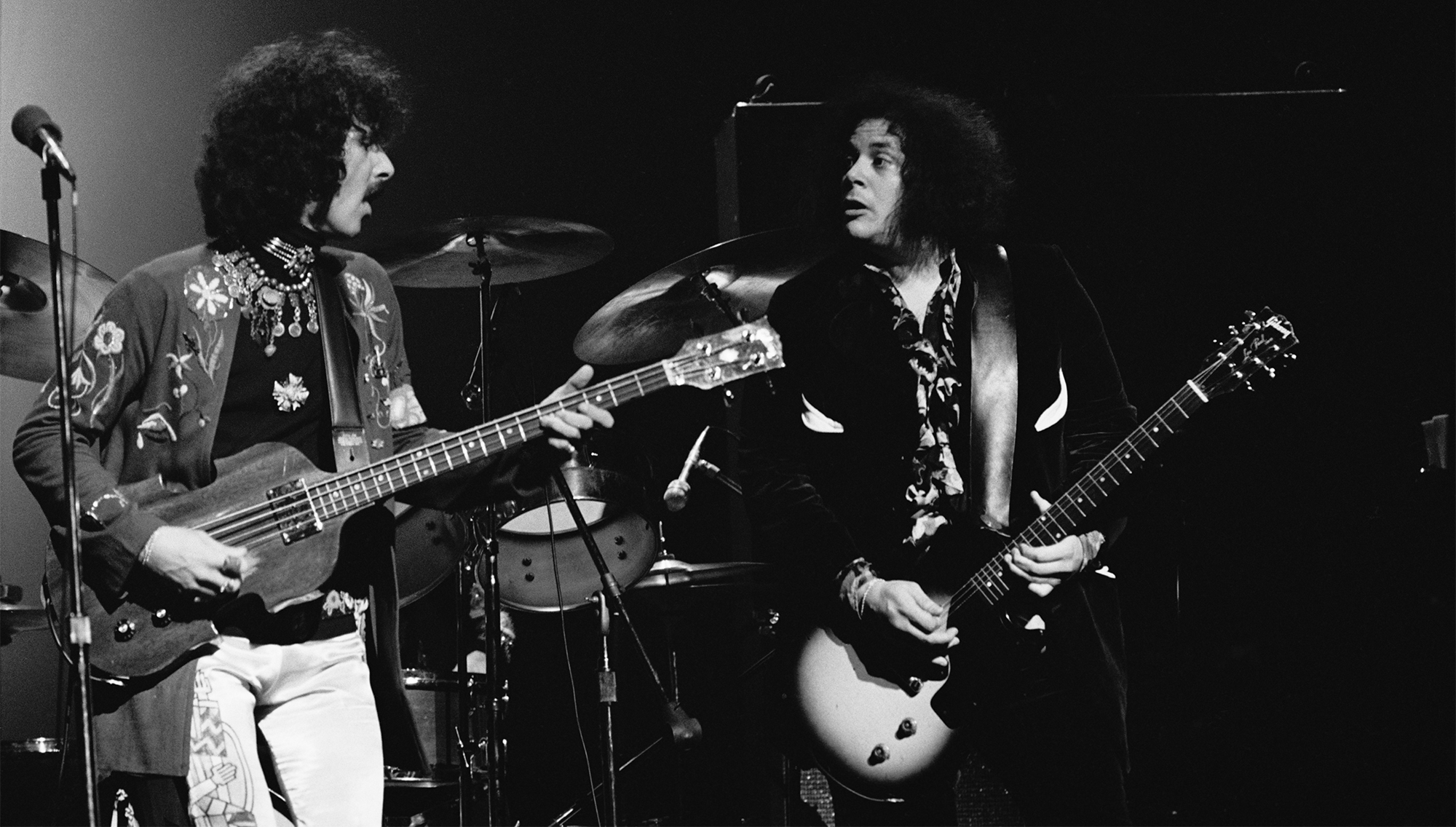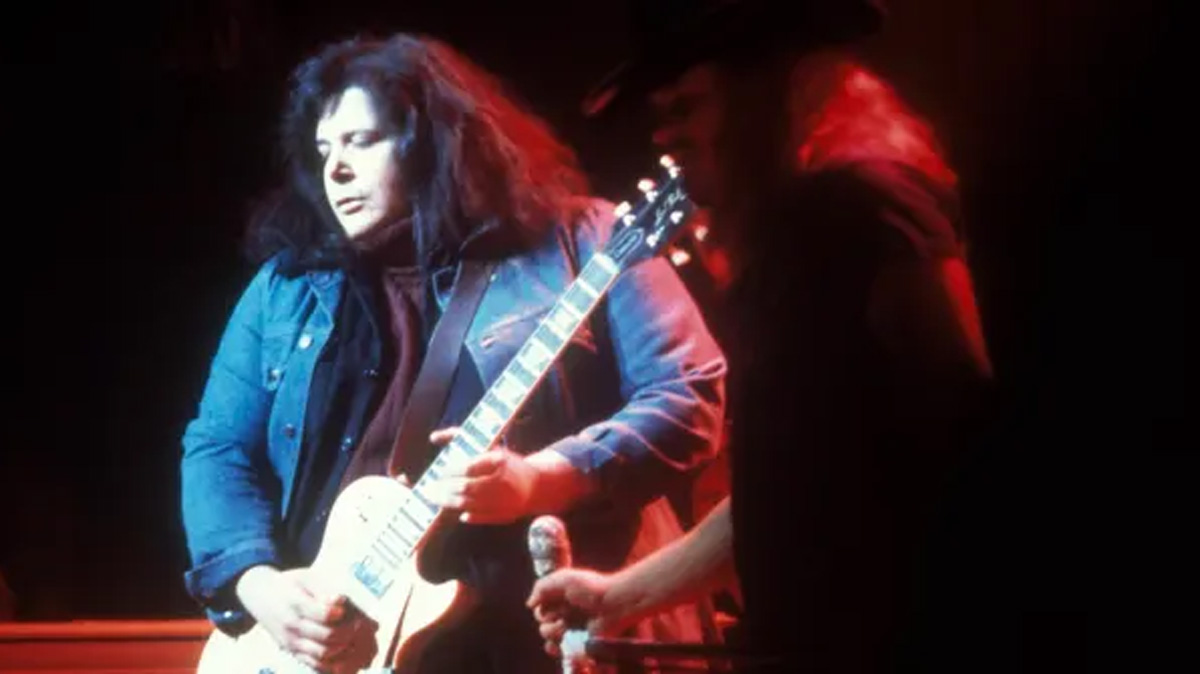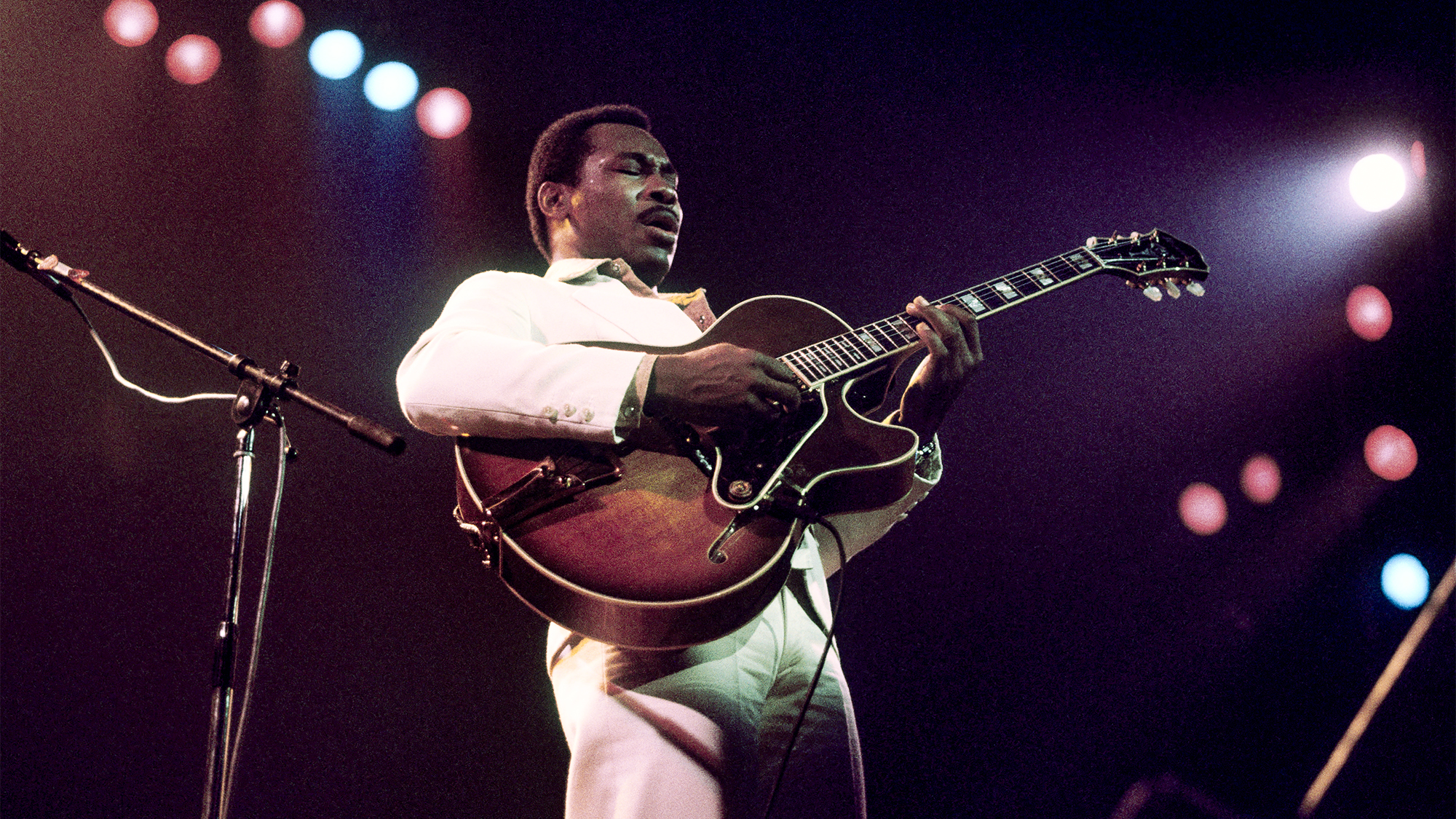“The guitar sounded like a voice, the voice sounded like a guitar — I didn’t know what was up.” Leslie West on Eric Clapton, the album that inspired Mountain — and the bassist who refused to make the group a power trio
With Cream producer Felix Pappalardi and drummer Corky Laing onboard, West had everything he needed to make his dream group— until Pappalardi drew the line

All the latest guitar news, interviews, lessons, reviews, deals and more, direct to your inbox!
You are now subscribed
Your newsletter sign-up was successful
The story goes that Eric Clapton was inspired to form his power trio Cream after seeing Buddy Guy perform with his trio in England. With the release of their debut album, Fresh Cream, in 1966, Clapton and his group would influence American guitarist Leslie West to follow suit and pursue a power trio of his own: Mountain.
“When I heard Fresh Cream I was shocked,” the late guitarist told us in our March 2014 issue. “I couldn’t believe what the hell was going on. The guitar sounded like a voice, the voice sounded like a guitar — I didn’t know what was up.”
Cream’s next album, 1967’s psychedelic-inspired Disraeli Gears, took things up several notches, thanks to its adventurous production and arrangements, courtesy of the group’s new producer Felix Pappalardi.
“And sure enough, when Disraeli Gears came out, I looked and saw that it was produced by Felix Pappalardi,” West said.
The name was very familiar to him.
“He had produced a couple of songs for my first group, the Vagrants. I remember saying to my brother — who was the bass player in the Vagrants — ‘Holy shit, that’s the same Felix that produced us!’ My brother said, ‘So how come we don’t sound like Cream?’ He thought we sucked because we didn’t practice enough. I started practicing a lot after that.”

West went on to hire Pappalardi as the bass guitarist and producer for his 1969 debut solo album, Mountain, which included drummer N.D. Smart rounding out the power-trio lineup. Listeners assumed Mountain was the band’s name. As a result, when West and Pappalardi subsequently decided to make it official and form a band, it was a foregone conclusion they would call it Mountain.
All the latest guitar news, interviews, lessons, reviews, deals and more, direct to your inbox!
I think Jack Bruce was the most talented musician I’ve ever played with. If it weren’t for drugs, we might even still be playing together.”
— Leslie West
They hired drummer Corky Laing, whose previous band, Energy, had been produced by Pappalardi. West was convinced they needed to remain a trio, but Pappalardi thought Mountain might appear to be riding the Cream's coattails, especially given his past involvement with the group. He believed the addition of a fourth member would solve the problem, so they hired keyboardist Steve Knight.
“That was because Felix didn’t want us to look or sound like Cream,” West confirmed. “And it worked on some songs — like ‘Theme From an Imaginary Western,’ ‘Don’t Look Around’ and ‘Nantucket Sleighride.’
“But we eventually dropped the keyboard. The organ was a nice pad, though, and I had to work a lot harder with the trio.”
If West was happy working with Pappalardi, he was even more thrilled when he got to play with Cream’s bassist, Jack Bruce, in his followup group, West, Bruce and Laing.
“When [Felix] decided he didn’t want to go on the road anymore, we started West, Bruce and Laing,” West says. “I think Jack Bruce was the most talented musician I’ve ever played with. If it weren’t for drugs, we might even still be playing together.”
In the same interview, West noted that he liked to keep everything simple. His electric guitar of choice in Mountain was a Gibson Les Paul Junior with a single P90 pickup. And although he didn’t play fast or use all the fingers on his fretting hand, he managed to carve out his own niche by making the most of his talents.

“I’m very lucky. I’m not a fast player and I only play with my first and third fingers, but I focused more on melody, tone and vibrato,” he said. He complemented those skills with his unique picking technique that employed pinch harmonics.
“That’s what I do best, rather than try to play fast, which I can’t. Nothing bothers me more than somebody who’s playing fast and sloppy and missing notes all over the place.
“When I was growing up, a lot of guys did speed, and when you talked to them you couldn’t understand a word they were saying. With speed-freak guitar players it’s like, ‘Where’s the downbeat?’”
He stopped playing and looked at me, and serious as can be he said, ‘Slow the fuck down!’ He meant it.”
— Jared James Nichols
West made a point of telling guitarists to keep their speed in check at every opportunity. Jared James Nichols told Guitar Player he was once the recipient of West’s wisdom when he was booked to open for the guitarist at B.B. King’s in New York City. Prior to the show, the two men had an impromptu session.
“We started jamming — it was really cool,” Nichols told Guitar Player. “Finally, he stopped playing and looked at me, and serious as can be he said, ‘Slow the fuck down!’ He meant it.”
After soundcheck, West sat down to give Nichols a bit of heartfelt advice, “He said that he really liked my vibrato and tone,” Nichols said. “I remember him saying, ‘You’ve got great feel and a nice touch. Don’t sacrifice all of that for speed.’ I’ll tell you, it meant a lot to me, and I really took it to heart.”
Christopher Scapelliti is editor-in-chief of GuitarPlayer.com and the former editor of Guitar Player, the world’s longest-running guitar magazine, founded in 1967. In his extensive career, he has authored in-depth interviews with such guitarists as Pete Townshend, Slash, Billy Corgan, Jack White, Elvis Costello and Todd Rundgren, and audio professionals including Beatles engineers Geoff Emerick and Ken Scott. He is the co-author of Guitar Aficionado: The Collections: The Most Famous, Rare, and Valuable Guitars in the World, a founding editor of Guitar Aficionado magazine, and a former editor with Guitar World, Guitar for the Practicing Musician and Maximum Guitar. Apart from guitars, he maintains a collection of more than 30 vintage analog synthesizers.
